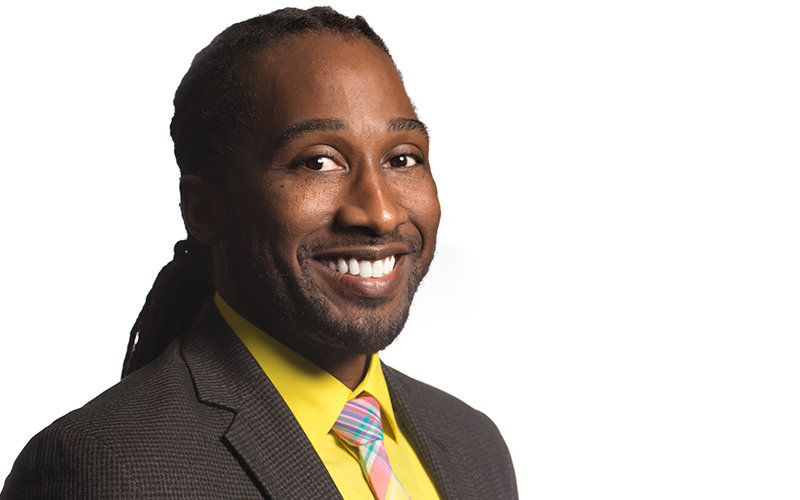
Gimmick, game or golden egg, if there’s a campaign making the news or setting trends in marketing, Joshua Dorsey, assistant professor of marketing, is likely discussing it with students in his Consumer Behavior and Professional Selling class.
Studying marketing requires a fluid definition of not just what sells, but who buys it and how consumer reaction shapes that market. Dorsey’s classroom discussions and research — ranging from aisle rage to health care financial decision-making, and from eco-labeling food and school lunch reform policies — forces his students to think differently. The discussions often include mindfulness, and policy and regulatory changes that could help consumers. He recently discussed customer-to-customer confrontations in Retail Therapy: Trends in Shopper Rage.
“I strip marketing down to its basic components and I make students look at the world through their own lenses,” Dorsey said. The process can be difficult at times, so pulling in current market conflicts and successes helps engage students, and keeps the discussions lively, he added.
Dorsey earned a bachelor of science degree in business administration, entrepreneurship and small business management and a master’s degree in business administration from East Carolina University’s College of Business. He completed his doctoral studies at West Virginia University’s College of Business and Economics, where he also taught courses in marketing analytics and research.
What inspired you to go into your field?
Marketing was always captivating, because it provided an opportunity to research interesting consumer conundrums and to obtain practical knowledge. Most importantly, I discovered that marketing could — if used for the purpose — improve the quality of people’s lives.
What areas of continued scholarship and research interest you?
Transformative consumer research. I have a vested interest in facilitating the well-being — financial, social, psychological, physical — of consumers, by embracing the intersection of marketing and psychology or sociology. Using the knowledge of how our cognitions, emotions, and environments influence our decision-making, we can facilitate positive outcomes for multiple types of well-being and allow consumers to become empowered. At the moment, health care financial decision-making is the object of my research affection.
What do you hope future business leaders learn from your instruction and expertise?
Marketing has the power to positively alter our societies. Marketing is not a tool solely reserved for profitability. Marketing ethically is a priority.
Incidents of customer-to-customer rage appear to be on the rise. What have you learned about studying the triggers and outcomes of such consumer behavior?
Aisle rage is a phenomenon of shared responsibility. Companies, employees and consumers can all commit to the safety and comfort of our shopping, entertainment and retail spaces by being accountable. Large or tragic aisle rage incidents often provide fodder for media coverage. However, many more smaller events occur daily that have the potential to negatively affect consumers or a brand and its revenues.